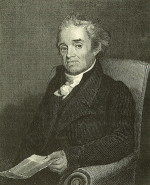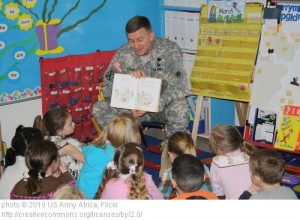
WORD GEEK: VIEWPOINT –
It’s Not What You’ve Heard
NaBloWriMo Post 6
This is a post is for my fellow word geeks: those who love the English language, care about the growing rate of functional illiteracy in the United States, and who seek ways to help children – and illiterate adults – learn to read and write well.
KEEPING THE BRAIN ACTIVE
If you fall into this category, as I do, please do not apologize for loving words and studying them! Doing so keeps the brain active, “flexible”, and orderly. Those are all good things. Besides, God gave language to us for a reason. (Lots of reasons, actually.) Categorically, we are the most fortunate people on earth to speak/read/write English. I realize this is sometimes an unpopular position to take. So you may ask, why do I make such a sweeping statement?
language
LAN’GUAGE, n. [L. lingua, the tongue, and speech.]
English is the largest language the world has ever known, and growing. Depending on which unabridged dictionary publisher and edition you consult, English has between 600,000 and 1,000,000 words, so you will never run out of words to learn and teach. You will never run out of words with which to increase your vocabulary, to enjoy, and to have fun with! In case you are wondering, the second largest language is German, which weighs in with 300,000 words.
THE PRESCIENCE OF NOAH WEBSTER
Noah Webster was not only a brilliant patriot, he was prescient when it came to understanding English. In 1828, when he published the first American dictionary of the English language, Noah Webster predicted that English would eventually take Christianity around the globe (it has) and that it would become the language of commerce, the arts, and the sciences (it has…and more).
Sadly, Webster’s life’s work is gradually being eroded by latter 20th century and early 21st century dictionaries’ misbegotten notions that Webster’s coding and phonemes are too hard for children to learn and for people to understand. Since the Third Edition of Webster’s came out in the early 1960s, we have had increasing problems with spelling and reading in this country, and it is getting worse. To complicate things further, the name “Webster” is now in the public domain. That means that if a dictionary has “Webster’s” in the title, it may or may not have anything to do with Noah Webster’s excellent, original work.
NEITHER BRAIN NOR LINGUISTICS HAS CHANGED
Neither the human brain nor English linguistics has changed since classical education was the norm. Thinking otherwise is both foolish and short-sighted. We have thrown the linguistic baby out with the bathwater in America, and we now show the worst literacy rate in the industrialized world. There is neither any excuse for this, nor any way back except to return to tried and true methods. And “political correctness” should be sent to whence it came. (I’ll leave the interpretation of that statement up to the reader.)
 MYTHS OF LANGUAGE ACQUISITION
MYTHS OF LANGUAGE ACQUISITION
I spend most of my career undoing what “modern” language scions have done to the children of America. And I get results, as do any of those teachers or parents fortunate enough to discover how to really teach their students to read. And read well.
It is not accomplished with a computer, it is accomplished with old-fashioned drill, practice, and application of the multi-sensory way our brains actually learn things, especially language.
I want Noah Webster to rest in peace, not roll in his grave!
IF IT AIN’T BROKE, DON’T FIX IT
Since the 1990s and the advent of inexpensive home computers, too many people think that handwritten language is no longer needed, or that learning to read can as easily and deeply be accomplished via keyboard. Not true, as keyboarding and language acquisition happen in two different parts of the brain.
“If it ain’t broke, don’t fix it,” is good advice. Too bad we did not pay attention to that maxim in the 1960s when working on our dictionaries in this country! Americans have now tinkered too much with the language, redesigned our dictionaries to the point of idiocy, and now do not know how to find our way back.
A HOPELESS CURMUDGEON?
Think I’m kidding? That I’m a hopeless curmudgeon?
Look again: the 2001 Encarta Dictionary, for instance, included over 700 entries of how NOT to spell a word (no kidding). Human brains are not like Spellcheck, thank heavens. People do not learn to read and spell by “scanning” lists of memorized words, they learn to read by decoding and encoding them at an incredibly fast brain speed. The mechanics of this has to be trained into them, one step at a time, until the automatic thinking speed takes over naturally in the brain. That works better than any other method ever demonstrated. Our language is much too large to rely on sight reading/memorization and the visual cortex alone. (The latter of which was not designed to decode language!)
A LANGUAGE 60% FOREIGN BORN
The vast lexicon of English is what makes it so flexible, internationally useful, and fascinating. 60% of our words are actually foreign born, rooted in the combined richness of other languages, particularly Greek and Latin. Latin itself lends its grammar and structure to much of ours, yet in America this is seldom taught anymore, either.
LIVING AND BREATHING WORDS
This is my living. I live and breathe words. I write, I teach, I speak. I love our language. I work to teach other people, and young folks in particular, to love it, too. Try it. You might like it.



Hi Sarah,
I’ve enjoyed all of your blogposts these last few days. Thanks! We are plugging away with SWR and I’m finally seeing that remembering correct spelling is clicking with my son. Thanks for your training!
Shanna:
Great to hear from you! Glad you’re enjoying the posts. It’s always amazing to watch a student blossom with SWR. The hardest part for the adults is generally being patient until those brain pathways “click” for each child. But it always happens and it’s beautiful to watch, isn’t it?
Have you subscribed to the blog or are you tracking on Facebook?
Thanks for writing; it’s nice to know the posts don’t just all into a cyber-hole somewhere!
Blessings,
Sarah Moser